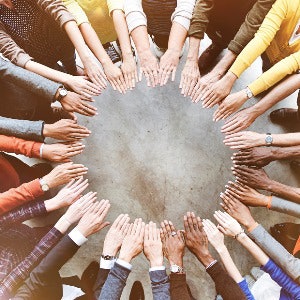Over the past three years, we have witnessed an increase in videos of unarmed Black men being killed at the hands of the police, the murder of 49 LGBT+ Latinx’s at the Pulse Nightclub, and, most recently, we witnessed one of our presidential candidates make overt demeaning statements about the Muslim population, undocumented individuals, and women.

We need social justice allies to speak up, lift up and fall back.
Speak up
Allies can utilize their position of privilege to advocate for marginalized groups, particularly in spaces where they are not always heard. When they do speak up, allies should first acknowledge their privilege, then engage in challenging social justice dialogues, as well as fight for justice among the oppressed. By speaking up and standing firm in their support of social justice in the presence of those who are perpetuating oppression/discrimination, social justice allies can help create change.
Psychological research tells us that most people are more comfortable among those that are similar to them; thus, may be more likely to listen and be moved by someone with a similar background. Allies must directly confront individuals who are engaging in microaggressions, hate rhetoric, violence. It may even require the White ally to become a “White traitor” — a person who defies white rules so strenuously as to jeopardize their ability to draw upon whiteness and its carried privileges (Ingatiev, 1997). Allies must respond to every manifestation of supremacy as if it were directed against them, regardless of the potential backlash.
Lift up














